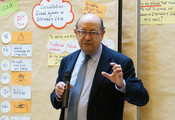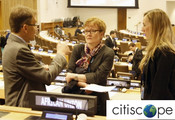
Ce blog se veut un espace de partage de connaissances, d'opinions, de plaidoyer et de débat, à la fois entre les membres de CGLU mais aussi avec la communauté internationale de gouvernements locaux et régionaux. Contributions et commentaires sont les bienvenus, de toute personne qui s'intéresse à la façon dont les gouvernements locaux et régionaux peuvent faire du monde un meilleur endroit pour leurs citoyens, sont ici les bienvenus.
Lisez et découvrez les initiatives locales des plus variées, innovantes et actuelles des gouvernements locaux et de leurs partenaires de par le monde.
















